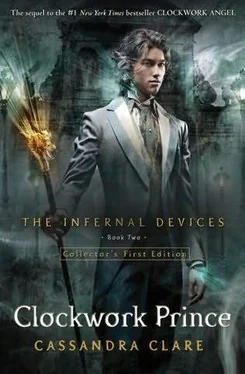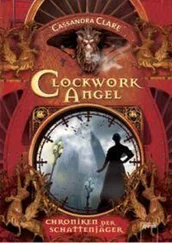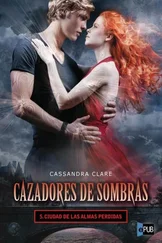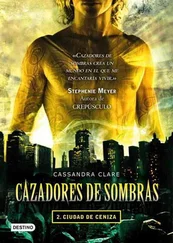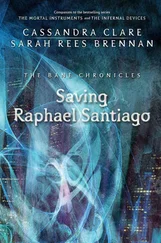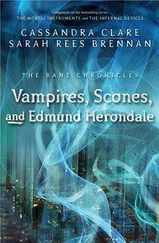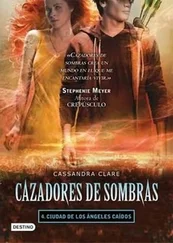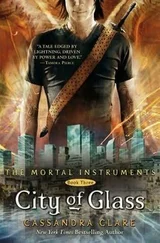“Yes?” she asked.
There was a little wistfulness in his expression as he looked at her. It was all she could do not to stare. Will, wistful? He had to be playacting. “Nothing. I—” He shook his head; a lock of dark hair fell over his forehead, and he pushed it out of his eyes impatiently. “Nothing,” he said again. “The first time I showed you the library, you told me your favorite book was The Wide, Wide World. I thought you might want to know that I . . . read it.” His head was down, his blue eyes looking up at her through those thick dark lashes; she wondered how many times he’d gotten whatever he wanted just by doing that.
She made her voice polite and distant. “And did you find it to your liking?”
“Not at all,” said Will. “Drivelly and sentimental, I thought.”
“Well, there’s no accounting for taste,” Tessa said sweetly, knowing he was trying to goad her, and refusing to take the bait. “What is one person’s pleasure is another’s poison, don’t you find?”
Was it her imagination, or did he look disappointed? “Have you any other American recommendations for me?”
“Why would you want one, when you scorn my taste? I think you may have to accept that we are quite far apart on the matter of reading material, as we are on so many things, and find your recommendations elsewhere, Mr. Herondale.” She bit her tongue almost as soon as the words were out of her mouth. That had been too much, she knew.
And indeed Will was on it, like a spider leaping onto a particularly tasty fly. “Mr. Herondale?” he demanded. “Tessa, I thought . . . ?”
“You thought what?” Her tone was glacial.
“That we could at least talk about books.”
“We did,” she said. “You insulted my taste. And you should know, The Wide, Wide World is not my favorite book. It is simply a story I enjoyed, like The Hidden Hand , or—You know, perhaps you should suggest something to me, so I can judge your taste. It’s hardly fair otherwise.”
Will hopped up onto the nearest table and sat, swinging his legs, obviously giving the question some thought. “ The Castle of Otranto— ”
“Isn’t that the book in which the hero’s son is crushed to death by a gigantic helmet that falls from the sky? And you said A Tale of Two Cities was silly!” said Tessa, who would have died rather than admit she had read Otranto and loved it.
“ A Tale of Two Cities ,” echoed Will. “I read it again, you know, because we had talked about it. You were right. It isn’t silly at all.”
“No?”
“No,” he said. “There is too much of despair in it.”
She met his gaze. His eyes were as blue as lakes; she felt as if she were falling into them. “Despair?”
Steadily he said, “There is no future for Sydney, is there, with or without love? He knows he cannot save himself without Lucie, but to let her near him would be to degrade her.”
She shook her head. “That is not how I recall it. His sacrifice is noble—”
“It is what is left to him,” said Will. “Do you not recall what he says to Lucie? ‘If it had been possible . . . that you could have returned the love of the man you see before yourself—flung away, wasted, drunken, poor creature of misuse as you know him to be—he would have been conscious this day and hour, in spite of his happiness, that he would bring you to misery, bring you to sorrow and repentance, blight you, disgrace you, pull you down with him—’”
A log fell in the fireplace, sending up a shower of sparks and startling them both and silencing Will; Tessa’s heart leaped, and she tore her eyes away from Will. Stupid, she told herself angrily. So stupid. She remembered how he had treated her, the things he had said, and now she was letting her knees turn to jelly at the drop of a line from Dickens.
“Well,” she said. “You have certainly memorized a great deal of it. That was impressive.”
Will pulled aside the neck of his shirt, revealing the graceful curve of his collarbone. It took her a moment to realize he was showing her a Mark a few inches above his heart. “Mnemosyne,” he said. “The Memory rune. It’s permanent.”
Tessa looked away quickly. “It is late. I must retire—I am exhausted.” She stepped past him, and moved toward the door. She wondered if he looked hurt, then pushed the thought from her mind. This was Will; however mercurial and passing his moods, however charming he was when he was in a good one, he was poison for her, for anyone.
“Vathek,” he said, sliding off the table.
She paused in the doorway, realizing she was still clutching the Coleridge book, but then decided she might as well take it. It would be a pleasant diversion from the Codex. “What was that?”
“Vathek,” he said again. “By William Beckford. If you found Otranto to your liking”—though, she thought, she had not admitted she did—“I think you will enjoy it.”
“Oh,” she said. “Well. Thank you. I will remember that.”
He did not answer; he was still standing where she had left him, near the table. He was looking at the ground, his dark hair hiding his face. A little bit of her heart softened, and before she could stop herself, she said, “And good night, Will.”
He looked up. “Good night, Tessa.” He sounded wistful again, but not as bleak as he had before. He reached out to stroke Church, who had slept through their entire conversation and the sound of the falling log in the fireplace, and was still stretched out on the book stand, paws in the air.
“Will—,” Tessa began, but it was too late. Church made a yowling noise at being woken, and lashed out with his claws. Will began to swear. Tessa left, unable to hide the slightest of smiles as she went.
Friendship is one mind in two bodies.
—Meng-tzu
Charlotte slammed the paper down onto her desk with an exclamation of rage. “Aloysius Starkweather is the most stubborn, hypocritical, obstinate, degenerate—” She broke off, clearly fighting for control of her temper. Tessa had never seen Charlotte’s mouth so firmly set into a hard line.
“Would you like a thesaurus?” Will inquired. He was sprawled in one of the wing-back armchairs near the fireplace in the drawing room, his boots up on the ottoman. They were caked with mud, and now so was the ottoman. Normally Charlotte would have been taking him to task for it, but the letter from Aloysius that she had received that morning, and that she had called them all into the drawing room to discuss, seemed to have absorbed all her attention. “You seem to be running out of words.”
“And is he really degenerate ?” Jem asked equably from the depths of the other armchair. “I mean, the old codger’s almost ninety—surely past real deviancy.”
“I don’t know,” said Will. “You’d be surprised at what some of the old fellows over at the Devil Tavern get up to.”
“Nothing anyone you know might get up to would surprise us, Will,” said Jessamine, who was lying on the chaise longue, a damp cloth over her forehead. She still had not gotten over her headache.
“Darling,” said Henry anxiously, coming around the desk to where his wife was sitting, “are you quite all right? You look a bit—splotchy.”
He wasn’t wrong. Red patches of rage had broken out over Charlotte’s face and throat.
“I think it’s charming,” said Will. “I’ve heard polka dots are the last word in fashion this season.”
Henry patted Charlotte’s shoulder anxiously. “Would you like a cool cloth? What can I do to help?”
Читать дальше
